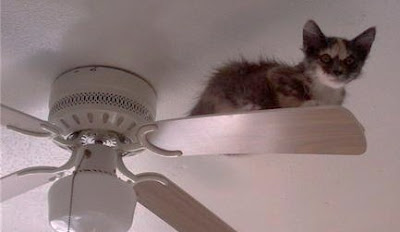Robin Williams and the talk of the 'stigma' of mental illness
The death of the actor has occasioned many ill-advised opinions
 Elizabeth Day
The Observer
Elizabeth Day
The Observer, Sunday 24 August 2014
Jump to comments (195)

Flowers are placed in memory of Robin Williams on his Walk of Fame star in the Hollywood district of Los Angeles. Photograph: Kevork Djansezian/AP
When a much-loved celebrity dies in a sudden and shocking way, the immediate human desire is to find an explanation. We want to rationalise brutality. We need the reassurance. We kid ourselves that knowledge is a bulwark against falling into the same situation. If we know what caused it, the flawed reasoning goes, we can prevent it from happening again.
So it was that, in the days after
Robin Williams took his life, media outlets were filled with speculation. Was it the threat of bankruptcy or career worries or a lifelong battle with addiction or a recent diagnosis of Parkinson's that made him confront the meaning of his existence?
The questions were futile. Depression is not a logical disease, a matter of straightforward cause and effect. Suicide is a devastating and complex beast. In truth, the only person capable of telling you why they did what they did has fatally absented themselves from the discussion. And sometimes, even they would be unable to pinpoint a reason.
But alongside the hopeless search for motivation, something else emerged in the aftermath of Williams's death. There was a lot of chatter surrounding the "stigma" of mental illness. Social networks were clogged with people urging others to seek help for their depression and not to feel "stigmatised" by their illness. There were magazine articles about mental health issues being "taboo" and how we must counteract this state of affairs by talking about our own struggles.
All of which is entirely admirable, but is there a stigma? The very fact that the internet was abuzz with people sharing their own stories of depression and encouraging others to do the same suggests that, thankfully, we live in a more accepting age. Most of us will know of close friends or family members who have dealt with depression. Some of us, myself included, will have experienced a form of it ourselves. Celebrities, too, have spoken out, fostering this culture of greater acceptance. The actresses Carrie Fisher and Catherine Zeta-Jones have talked about their bipolar disorders. Stephen Fry has written movingly about his depression.
As a result, I don't view mental illness as a scary, strange thing or as a form of weakness. Do you? I doubt it. And because we are talking more openly than we might have done in the past, many employers have become more attuned to dealing with it. If a workplace failed in this duty of care, there would, rightly, be outrage.
Stigma exists in other places – in the long-term care of the elderly, for instance: that unglamorous world of colostomy bags and daily drudgery we don't like to talk about because we're scared it lies ahead of us all.
There is still work to be done. An applicant for a job might feel less inclined to mention a history of mental health problems than, say, a battle with cancer. That is wrong.
But bandying around the term "stigma" in reference to mental illness is unhelpful. It does precisely the opposite of what it intends to do: it means we're actually more likely to think of it in those terms because of the repeated association. Can't we just ditch the word?
What does "stigma" mean, anyway? The original definition has its roots in a Greek term that referred to the marking – by cutting or burning – of socially undesirable types such as criminals, slaves or traitors. Later, the Canadian sociologist Erving Goffman defined social stigma as "the phenomenon whereby an individual with an attribute which is deeply discredited by his/her society is rejected as a result of the attribute".
Does that apply to mental health? Increasingly, I would say the answer is no. Yes, we should keep talking about depression. Yes, we should be profoundly sensitive to those who grapple with it every day of their lives. But let's stop saying there's a stigma attached to it.
(Emphasis mine. This article echoes one of my previous posts, expressing the belief that juxtaposing the ugly, scary word "stigma" with ANY condition "marks" it in a way which reminds me of the plural of stigma - stigmata
. No more bleeding wounds, eh? No more creepy supernatural manifestations, "demons" (a word people casually use to describe mental illness without ONCE stopping to think exactly what they are saying), or any of the crap that still hangs around human pain. Let's get real, use some sensible and sensitive language, and get on the path to real healing.)
Order The Glass Character from:
Thistledown Press
Amazon.com
Chapters/Indigo.ca
















































